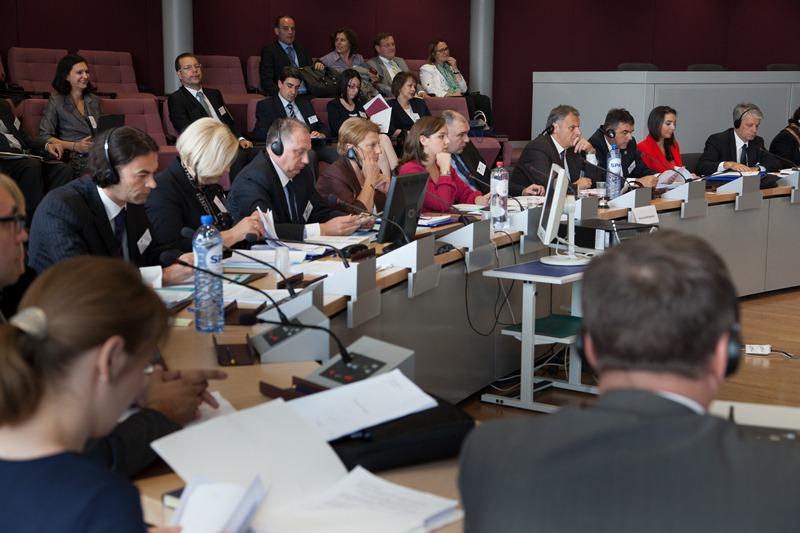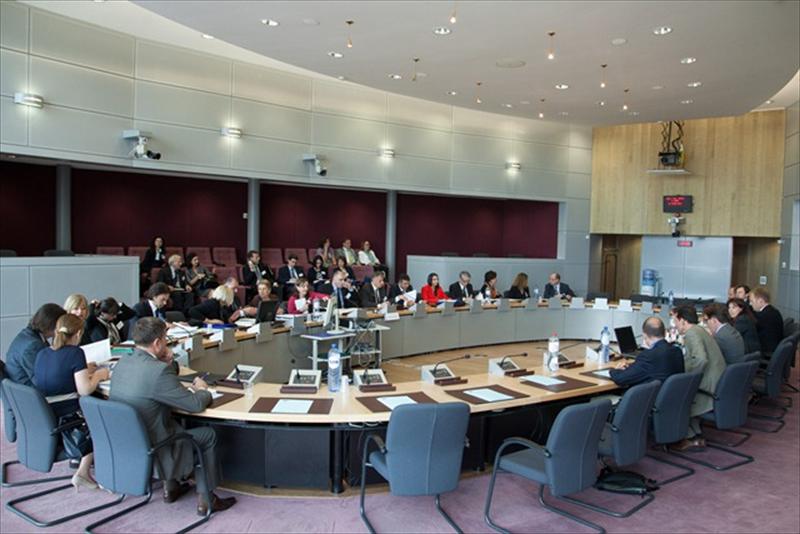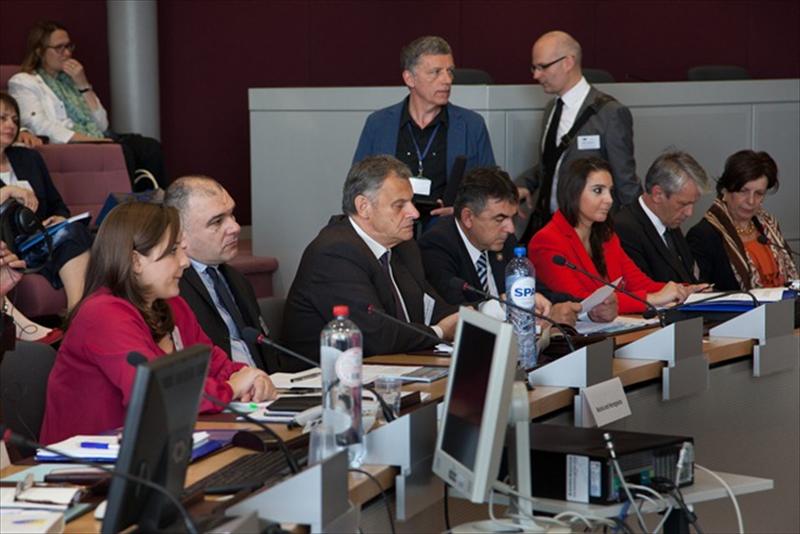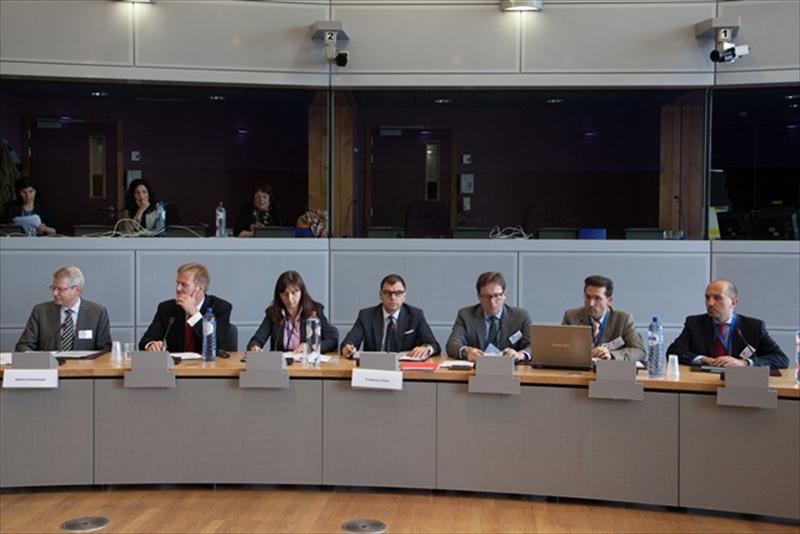Recommendations by the European Commission Services
On the Draft Law on the Courts of BiH, the European Commission
• Commends the efforts by the Ministry of Justice of BiH to implement the relevant recommendations of the 4th Structured Dialogue plenary session in Brčko (8-9 April 2013), also according to the suggested timetable.
• Welcomes that the Ministry of Justice of BiH has prepared a draft law that establishes a new Appellate Court of BiH, separated from the first instance, which mirrors the jurisdiction of the latter. At the same time, welcomes that the criminal jurisdiction of the state level judiciary has been undergoing revisions in the sense of clarification. The incorporation of the relevant findings and conclusions expressed in the Opinion of the Venice Commission (adopted at its 95th Plenary Session on 15 June 2013) in the latest version of the draft Law on Courts of BiH determined a significant development, which shall be complemented with addressing residual open issues.
• Takes positively note of a general consensus reached at this first thematic plenary on the key principles of the proposed reform, which relate to the maintenance of an extended criminal jurisdiction of the state level judiciary, admissible under well determined and clarified circumstances, as well as on the configuration of a system with first instance court and a new separate appellate court.
• Witnessing this consensus, calls upon the Ministry of Justice to finalise the work related to the outstanding issues, also in accordance to the main outcome of the public consultation process, with a view to submit as soon as feasible (possibly by the end of summer), an amended text of the draft Law on the Courts of BiH to the Council of Ministers for consideration. This shall be the outcome of continued and timely consultations with all domestic stakeholders. Through this process, the proponent of the law shall ensure that any legisltative solution transposes the agreed principles in the most appropriate way to ensure legal certainty and respect of the principle of the natural judge.
• Stresses the need to avoid any disruption of operations at the various instances after a new Law on the Courts of BiH is adopted. Budgetary, staffing and other technical consequences of the new law shall be carefully evaluated, as well the needs to ensure full capacity and independence of the envisaged Appellate Court.
• Reiterates the recommendation that continuous compatibility is maintained between all provisions in the new legislation on the Courts of BiH that are related to dispositions in the law on the High Judicial and Prosecutor Council (HJPC), particularly to those determining the HJPC prerogatives for appointments and appraisals.
On the process of amendments of the Law on the HJPC, the European Commission
• Reiterates that the integrity and the main prerogatives and competencies of the HJPC, should be preserved in the amended Law, thus protecting the fundamental role that such institution plays for the independence of the judiciary, as well as for the overall entrenchment of the rule of law in BiH, as established through an agreement on transfer of competencies between the Entities.
• Reiterates the invitation to the Ministry of Justice of BiH, as proponent of the amendments, to seek the Opinion of the Venice Commission and launch, in parallel, a comprehensive public consultations process. These steps shall be prior to submitting the set of amendments to the Council of Ministers.
• Strongly supports the HJPC in its on-going efforts to make the procedures for the access to judicial careers more rigorous, the appointment of judges and prosecutors as objective and transparent as possible, and to further consolidate provisions that prevent conflict of interests cases throughout the judiciary.
On the follow up of previous sessions of the Structured Dialogue, the European Commission
Reminds that all the recommendations previously issued that still require due follow up by domestic authorities remain valid and must be duly implemented without any further delay.











